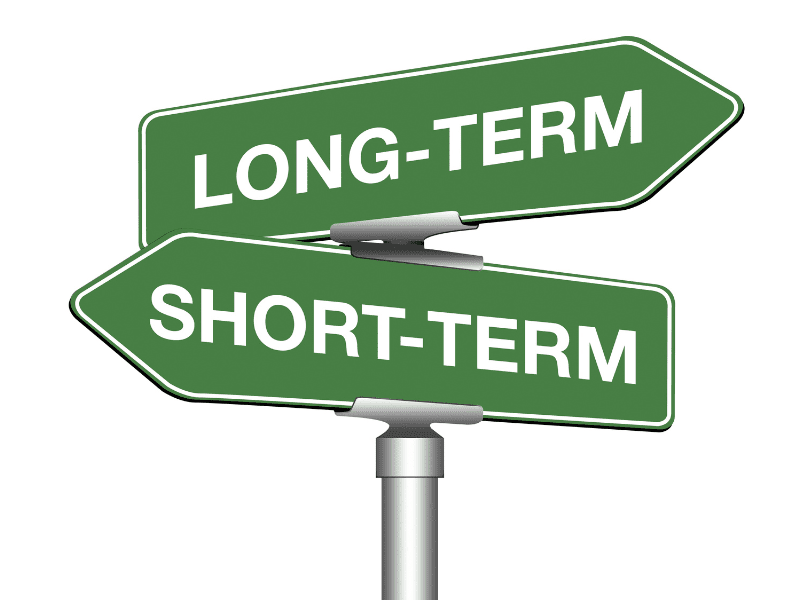Podcast: Play in new window | Download
Today we have a pretty cool guest on The Property Management Show Podcast. Shawn Johnson of Independence Capital Property Management is an investor and property manager, and he shares a lot of golden nuggets that will help property managers attract investors, and work better with investor clients.
Our focus is on the relationship between investors and property managers, and how the two worlds come together. There are a lot of misconceptions that keep investors from working well with property managers, and there are also misconceptions that keep property managers from offering more value and expertise to their investor clients.
We’re talking about solutions to all of that with Shawn.
Introducing Shawn Johnson
Shawn bought his first house in 2002 when he was 20 years old. The market was taking off, so he lived in the house as his primary residence for two years and then sold it, netting $65,000 in profit. That experience gave him the real estate investing bug.
His goal was to have three income-producing properties by the time he was 27 years old. That didn’t happen. He bought a car wash instead.
After that great first experience, he bought a property to flip. But he broke even and didn’t make any money on it. This was disappointing, but it didn’t stop him from becoming a smarter investor. He decided to forget flipping and invested in long-term rental homes instead.
The entrepreneurial bug took over and Shawn decided to make things happen.
He began acquiring more properties, and the first few rentals he managed himself. But, as soon as he brought staff onto his property management company, he was happy to hand over the management of those properties to the team of qualified property managers he had hired. Now, he has a portfolio of properties local to Farmington, New Mexico, and he also owns rental homes in Indianapolis. Those investments are also in the care of an experienced property manager.

How Property Managers Can Attract Investors
Property Management Investors: Being an Investor Makes you a Better Property Manager
Being an investor yourself shapes the way you run your property management company.
Investors want three things:
-
- The best tenant.
- The fastest tenant placement process.
- The highest rent.
Knowing this on a personal level has helped Shawn serve his investor clients better. It informs the leasing process at his company, and it allows him to share a different perspective for how to maximize investor gains.
If you’re a property manager who also invests in rental properties, you should position yourself as an investor-minded property management company. This is a shift that Shawn has made in his business over the last couple of years.
When current clients are asking to leverage their existing property to buy more rentals, you’re providing more value and growing your business. You can help clients with self-directed IRAs if they want to convert their 401k plan to buy investment property.
Make yourself available to investors as an investor.
Growing Your Business with Current Clients
Knowing your pool of existing clients can help property managers attract investors. When you decide to grow your business, you can go after new clients, but you can also see how you might be able to help your current clients.
Shawn noticed that his current investors were telling him they’d been thinking about selling their properties. Instead of putting those properties out on the open market, Shawn considered two things – did he want to buy the property himself? And, did he have other investor clients who might be interested in the opportunity?
When the property your investor is selling seems like a good fit for your own portfolio, you can probably work out favorable terms. If it’s not the right investment opportunity for you, set up a pocket listing program for your other clients. This is an excellent way to grow your business with your existing pool of clients.
Sometimes, owners learn quickly that they don’t like being landlords.
Shawn had a situation where he took over an owner’s property with a $30,000 down payment. That gave him two homes worth $350,000 that immediately cash flowed because the seller offered zero percent financing for two years.
These opportunities are available to you. Know how to find them and be prepared to take them.
Did you catch our blog on capturing more investor leads on your property management website? If not, that’s a great place to start building your investor clientele.

Changing Your Mindset to Avoid Short-Term Thinking
Real estate can sometimes be a short-sighted industry. It’s hard to look at the long term because this is a sales market, and every broker or Realtor is chasing that next commission. But, if you take the $10,000 commission you earn on the next property you sell and buy a rental property with it, you’ll eventually turn that money into $300,000.
Not a lot of property managers and real estate agents are willing to think this way.
But, Shawn says it’s the only way he thinks.
There’s a big misconception that you need a lot of cash to buy property. Shawn says he has bought a lot of houses with no money.
It could be a mindset problem and it could be a priority problem. Do you want to use your money to buy a nice car now, or do you want to invest it in a rental property in which you will accomplish two things:
- You’ll earn a lot more than that new car will ever be worth; and,
- You’ll be able to provide better property management as an investor yourself.
You can buy houses with zero money down. As long as you have a little bit set aside for the furnace that might break down, you can own an investment home yourself. You should own an investment home yourself.
It’s important to understand compound interest and the way it can create generational wealth. Work out the numbers so you can see how well rentals perform and cash flow over time. If you invest $10,000 to buy a home and you’re earning $300 in cash every month, it might seem discouraging for a while. But, when you think about the $300 per month over the span of 40 years, you realize how much money your property is actually earning. And, that doesn’t even include the appreciation of the home.
You also have a tenant who is paying your mortgage and your expenses. When you don’t have any debt, you can use your cash flow to buy additional rental properties and then you’re really leveraging what you have and what you earn.
Don’t miss these opportunities to create generational wealth.
Relationship Issues: Property Managers and Investors
There are some misconceptions between investment property managers, and investors that can damage relationships.
Sometimes, property managers get into a trap where you assume all investors have a lot of money. So, when the furnace needs to be replaced, you expect the investor to simply make it happen.
But, life happens to investors, too. There can be personal problems and divorces and health issues. So they might have some financial struggles of their own. They’re not trying to be bad landlords; they’re just in a tough situation.
Shawn tells all of his investor clients to take at least their first year or two of cash flow and put it into an account for savings. If they don’t touch it and they save $4,000 or $5,000, they’ll be protected if an expensive maintenance or repair is needed and they don’t have the money.
Property managers need to stop thinking all investors are rich.
On the investor side, they usually think all property managers are the same. They assume your only role as a property manager is to find a tenant and collect rent.
You know that’s not true.
Investors also may have the misconception that property managers just collect their management fees and don’t really care about the properties or their clients.
You know that’s also not true. Most property managers are stacking nickels to make a dollar in this industry. Even if you’re fee-maximized, it takes a lot to turn a profit in the property management industry. This is a DIY culture. It’s sometimes hard work to explain your value to investors unless they have 10 or more properties and they can’t keep up.
Understanding the perspective of both sides can help property managers attract investors.

Encouraging Accidental Landlords to Continue Investing
A best-case-scenario for a property manager might be having one of your accidental landlords decide to invest in another property, and then another one.
This strategy depends on their success with the first property they’re renting out. If they’re upside down with their existing rental, meaning the amount they collect in rent doesn’t cover their expenses, they aren’t going to be very enthusiastic about buying another rental.
But, if they see the benefits of investing with their own rental home, you should absolutely encourage them to buy additional properties, and to show them how to effectively do it. This is another reason that you need to have investment experience of your own.

When Investor Clients Push Back
Perhaps your investors aren’t interested in new opportunities and properties, and they tell you they just want you to focus on finding a tenant and collecting rent.
How should you respond?
Shawn suggests you explain that you have many processes in place to ensure you’re maximizing your investor’s long term returns. You should also explain that you want to minimize the risks involved in owning a rental property.
At Independence Capital Property Management, there are various programs including:
- Rent Loss Protection
- Property Protection
- Eviction Protection
While these protection programs are generally geared towards reluctant landlords who aren’t prepared for bad situations, many investors hesitate. So, Shawn or his BDM has to explain the rationale behind them. With these plans, investors don’t have to worry if a tenant loses a job.
Something property managers might not know – credit score rarely reflects the likelihood of eviction. He looked at all of his application data, and none of the evictions he ever did were on people with low credit scores. There’s no relation. People get evicted because they lose their jobs, and that can happen to someone with a 780 credit score.
It’s not just the packaging that works. It’s how you present the package to those investors who are skeptical or who think your only job is to find a tenant and collect rent. Presenting the package with all the right information will help property managers attract investors.
When You Want to Invest but Can’t Go All-In
There cannot be any bias or any perception of bias when Shawn’s team manages his properties as well as client properties. That expectation is set with staff from the very beginning. And, there are staff members who also own rental homes. They are not permitted to manage their own properties. This is important in maintaining objectivity and the best possible service standards.
Currently, Shawn is talking about a program where more of his staff members can become investors. He loves helping to build wealth for others, and it’s a great incentive for his employees. When someone cannot put in a lot of money but wants to own a property, they can pool it with others and then everyone owns a share of the investment. It’s received positive feedback from the company so far.
If you’re in a similar situation and you want to invest a little bit in rental properties but not take on all the risk, Shawn recommends you participate in syndication or a Real Estate Investment Trust (REIT). You’re still risking your capital, but the chances of the investment not performing are far less.

Property Managers Becoming Investors: 3 Things to Remember
Choose credible investment partners. Buy properties in LLCs and make sure you have an operating agreement.
Remember that real estate is the best possible investment because you won’t ever see a zero dollar value asset. Even if the house burns down, there’s insurance. Stocks can go to zero. Or, they can turn into penny stocks and lose serious value. Real estate will always be worth something.
Don’t invest if you don’t have the finances to support the home and provide a safe and functioning rental for tenants. That can get you into a sticky situation. If you have $100,000 to invest, don’t buy a $100,000 house. Buy an $80,000 house instead so you have some money in reserves. If nothing happens and you don’t need those reserves, great.
You can buy another property.

How to Help Investors if You’re 100% Property Management
If you’re a property manager who also sells real estate, helping investors buy and sell homes is a no-brainer. But, if you’re a property manager with a company that focuses solely on property management services, how can you offer more to your investment clients?
Shawn suggests two things. First, educate yourself. This is easy to do with all of the real estate investing podcasts, websites, and books that are available. Second, do an event or some kind of investor gathering. When investors find out you’re a professional property manager, you’ll be the expert in what types of properties are best and how well they’ll cash flow. Get your message out there, and you’ll attract investors who want your help.
You should also build relationships with the Realtors who are investor-minded. Take them out for coffee or dinner and explain your interest. Show them you’re not a competitor and offer to talk about throwing business to each other.
Today’s biggest take away: Stop thinking short-term and start thinking long-term.
Other things to take with you:
- You can create your own wealth.
- You need to understand compounding interest.
- Investing in rental property reduces your tax liability.
- If you’re a real estate agent, talk to your CPA about the real estate professional’s deduction.
You can create your own wealth. We hope these tips will help our property managers attract investors. If you have any questions about this, reach out to Shawn Johnson at Independence Capital Property Management or give us a call at Fourandhalf.


